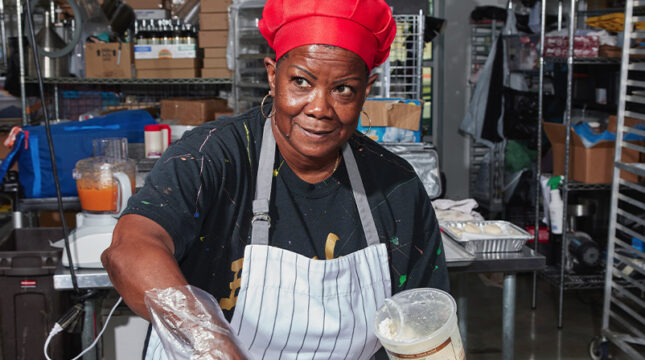Who needs Arizona food manager certification?
In Arizona, no state law requires restaurants and food service businesses to have a certified food manager on staff.
Instead, each business must have a “person in charge” who is responsible for the operation of the business during all hours of operation. The owner or an employee designated by the owner may act as a person in charge.
During an inspection, the person in charge must demonstrate their knowledge of foodborne disease prevention, temperature control, application of the hazard analysis critical control point principles and the requirements of the Arizona food code.
There are two options for satisfying this requirement:
- Responding correctly to the inspector’s questions about food operation, which may cover topics like proper food temperatures and times, personal hygiene, cross-contamination and sanitizing equipment, utensils and surfaces
- Being a certified food protection manager who has passed food manager training through an anab-accredited program like ServSafe or the American National Standards Institute (ANSI).
So while there is no state mandate to employ a certified food protection manager, Arizona restaurant and food business owners may want a person to read the study guide and do the training program to earn their certification and meet the inspector’s requirements.
Insurance for Arizona restaurants and food managers
Arizona business insurance can help protect your restaurant, bakery, cafe, catering company or food service business from different types of risks.
In addition to financial protection and fulfilling compliance requirements in the state, city or county, business insurance can help make your business look more professional and ready for business.
Many food services businesses in your state have an insurance policy that combines these types of insurance coverage:
General liability insurance
General liability insurance can help provide coverage if an accident causes property damage or an injury to someone other than you or an employee.
Food service general liability insurance can help protect your business with foodborne illness coverage, which may provide important protections if your customers become sick from contaminated food.
If you plan to get your liquor license, you may also want to consider Arizona liquor liability insurance. This coverage can help protect your business from risks associated with serving alcohol.
Commercial property insurance
Commercial property insurance can help cover physical business assets, such as buildings, equipment, inventory and furniture. This insurance may help pay for repairs or replacements if a covered event damages your commercial property.
BOP insurance (Business Owner’s Property)
A business owner’s policy, also called a BOP insurance policy, combines general liability and commercial property insurance coverage into a single, often cost-efficient and convenient package.
A BOP can carry more protection than a single policy. It can help cover damage that you or your employees may inadvertently cause to another person’s property, as well as bodily injury accidents that injure any non-employee at your business.
Workers’ compensation insurance
Arizona workers’ compensation insurance can help cover lost wages and medical expenses if an employee gets hurt on the job. All employers in Arizona are required to have workers’ comp coverage.
Commercial auto insurance
Commercial auto insurance can help cover medical expenses, property damage and other related costs if you or an employee is involved in an accident while driving a work vehicle.
In Arizona, all vehicles must meet the minimum auto coverage requirements of $25,000 per person, $50,000 per accident and $15,000 for property damage.
How to get Arizona food manager certification
Arizona employees can complete the process online or in person in counties requiring food manager certification.
Depending on county mandates, restaurant or food service employees may need to complete food safety training and pass the certification exam. Training courses cover several topics related to proper food handling, such as:
- Food hazards
- Personal hygiene
- Cross-contamination and allergens
- Time and temperature
- Cleaning and sanitation
Participants must earn a passing grade on the exam to obtain their certification.
Employees receive an Arizona food manager certificate once they successfully pass the exam. Typically, the employer is responsible for keeping a copy on-site for health inspections, but this may vary by county.
Renewal is typically required every five years for certified food managers. Arizona employees who need to renew their food safety manager certification must retake the exam and, if required, post their renewed certificate in a visible workplace area.
Some counties in Arizona may offer reciprocity for food manager certifications as long as they were originally issued from an approved provider. Check with your local health department for clarification.
Local city and county requirements for Arizona food manager certification
Arizona permits counties to set their own food employee training and certification requirements. Several mandate that a certified food manager needs to be present during all hours of operation.
As a result, several counties across the state require food manager certification. Arizona restaurant and food business owners must check with their local government to ensure they’re meeting county requirements.
Some examples of counties with Arizona food manager certification requirements include:
Maricopa county food manager certification
All food service businesses in Maricopa County must have at least one certified food protection manager (CFPM) on staff. A person in charge who is a CFPM must be on-site during all hours of operation. To become certified, employees must pass an exam from an ANSI-accredited provider. Certificates must be visible or readily accessible for health inspections.
Pinal county food manager certification
All food service businesses in Pinal County must have at least one certified food protection manager on staff. To become certified, they must pass a test administered by an ANSI-accredited provider.
Yavapai county food manager certification
Restaurants and food businesses in Yavapai County must have at least one certified food protection manager on-site during all hours of operation. To become certified, employees must complete a program accredited by the Conference for Food Protection and display their certificate in the workplace.
Coconino county food manager certification
In Coconino County, all food service businesses must have at least one certified food protection manager on staff. A CFPM must be physically present during all hours of operation, and their certificate must be visible or readily accessible for inspections. Food protection manager certifications must come from an ANSI-accredited provider.
How much does Arizona food manager certification cost?
Fees for Arizona food manager certification vary by provider. Generally, ANSI-approved exams cost around $30. Employees who also take the food protection course can expect to pay around $80 to $100 for both the training and the exam.
Restaurant owners generally aren’t required to cover the cost of food manager certification for their employees. A certification is the employee’s property, and they are permitted to use it at other food service businesses if they change jobs.
Food manager certification vs. food handlers card
The Arizona Department of Environmental Health does not require food handler licenses. However, food safety certification is recommended for all employees who work with food.
Arizona food handler license requirements vary by location since individual counties can set their own mandates. The following are some of the Arizona counties that require all employees who work with food (except for certified food managers) to have a food handler license:
- Maricopa County
- Pinal County
- Yavapai County
- Yuma County
The specific requirements for food handler licenses vary by county, so check with your local health department to ensure you comply with county laws.
Employees typically required to meet Arizona food handler license requirements include hosts, servers, bussers, on-site event coordinators, kitchen staff, bartenders and other employees at food service businesses.
In counties where certified food managers are required, these individuals oversee the food handlers and ensure proper food preparation, cooking and storage takes place.
Training food handlers and food managers helps protect your business by reducing the risk of foodborne illness. Although these certifications may not be required in your county, you may want to have your staff formally trained to help protect your customers.






